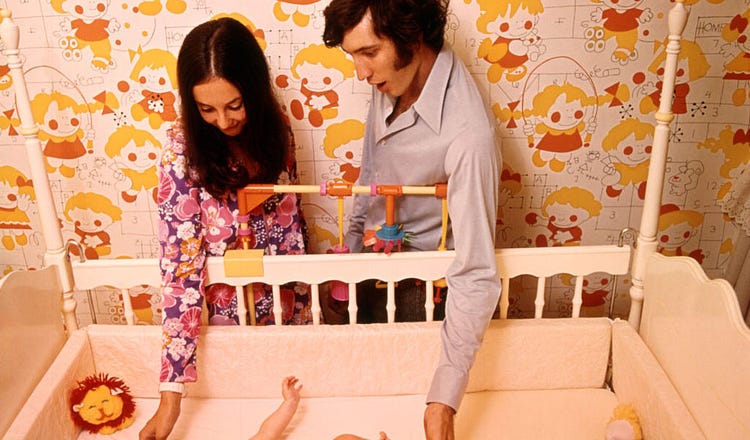
Over the last few weeks, we’ve brought you our hit podcast, Raising Parents, covering the most burning issues moms and dads face today. We’ve explored how smartphones are ruining childhood, how you can discipline your toddler without being too “soft,” and what’s behind the rise in ADHD among boys. Today, our final episode drops and asks the biggest question of all: “Should You Even Have Kids?”
For most of human history, having kids wasn’t really a choice. Social expectations, a lack of birth control, and limited autonomy for women presented a simple menu of options: Have kids or join the convent. But after the 1960s ushered in easy, effective contraception and greater career opportunities for women, for the first time in history, many could choose how many children to have—or whether they should have them at all.
Fast forward to today, and more people are choosing not to have children for a variety of reasons. Some say they don’t want kids because of financial strain, or climate apocalypse, or because they simply don’t want them. Others say they do want kids, so they can heal generational trauma, or to give their first kid a sibling. A man once told me it was important for him to bear heirs so he could pass on his spectacular genes. Maybe that’s the underlying motivation, even if most would not put it quite so. . . bluntly.
Having children is a personal choice. It’s also a choice that has broader, global implications. Everywhere across the world—in the U.S., Europe, Asia, Africa—fewer children are being born. And strangely enough, having kids has become part of the culture wars. You’ve got pro-natalist public figures like Elon Musk on one side saying everyone needs to procreate immediately in order to save humanity. And on the other side, people like climate activist Greta Thunberg say producing more children in an era of global warming is irresponsible.
But there’s no doubt that the fertility rate is plummeting. Presently, American women, on average, have 1.6 kids. In the 1950s, it was 3. In the U.S., the fertility rate needed for a generation to replace itself without immigration is approximately 2.1 births per woman. Around the world, between 1950 and 2021, as many countries got richer and women chose to have fewer kids, the fertility rate has fallen by more than half.
For economists—and I’m one of them—the speed of this plummeting fertility rate is cause for alarm. Economic growth partly depends on population growth. Retirees rely on younger workers to generate taxes and contributions to Social Security. With fertility rates in free fall, the math doesn’t add up.
So far, our series, Raising Parents, has focused on the state of our children. Today, we cap things off with a fundamental question: Should you even have kids—and what happens if we don’t?
Spoiler: I won’t tell you whether or not to have kids. It’s a personal decision and also a financial one, a religious one, and for some, a political one. You’ll hear from a range of guests, all of whom I agree with, in part.
For example:

